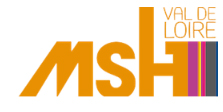[Séminaire] Rethinking the role of the state in urban development and planning of Middle Eastern Cities, the case of Tehran
Date : 14/04/2022Lieu : MSH Val de Loire - Salle 147
Azadeh Mashayekhi, lecturer à l’University College of London et chercheuse invitée à EMAM pour le mois d’avril nous présentera ses travaux autour de la thématique « Rethinking the role of the state in urban development and planning of Middle Eastern Cities, the case of Tehran »
Within urban planning scholarship the predominant view of the urban politics of Middle Eastern cities conceives of the state as authoritarian and omnipotent, fully controlling the political-economic and socio-spatial changes in these cities. This paper uses the case of Tehran, the capital city of Iran, to reflect on this dominant view by interrogating the role of state institutions in relation to charitable revolutionary foundations [1] in shaping Tehran’s urban development and planning practices during the last four decades. The paper shows how the polarised political structure of Iran—which combines authoritarian and democratic practices, and where sovereignty is divided between elected executives and unelected ones (Shambayati, 2004) —has directly influenced the planning system and planning practices and, therefore, the pattern of Tehran’s urban planning and development. The case of Tehran illustrates the crucial involvement of charitable foundations and large holding companies in urban development projects, independent from the municipality and the central state. Furthermore the paper discusses that, the revolutionary foundations are not unique to Tehran—other Middle Eastern cities are facing a similar phenomenon. Hezbollah [2] and Solidere [3] in Lebanon, or Abdali investment company in Amman, are similar examples of developmental organisations with political and ideological agendas (Fawaz, 2009 ; Abu-Hamdi, 2017 ; Khirfan, et. al. 2017).
By interrogating the state power (central and local government) in producing Tehran’s urbanism, the findings of this paper raises a debate on unquestioned assumptions in planning theory about the ‘modern state’, its forms and its function, and its abilities and limitations to govern and shape a 21st century Middle Eastern city. The paper concludes by arguing that the 21st century challenges of urban governance and planning in Tehran and other cities of the region cannot be addressed without further critical research on the role of religious-political groups or any other developmental organisation with ide¬ological orientations in shaping urban spaces and spatial practices.

